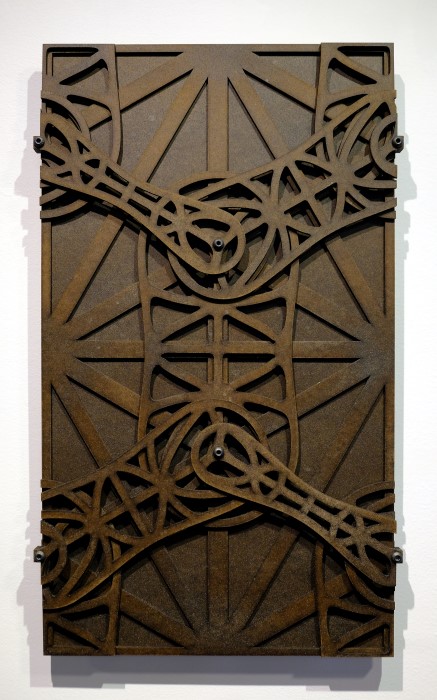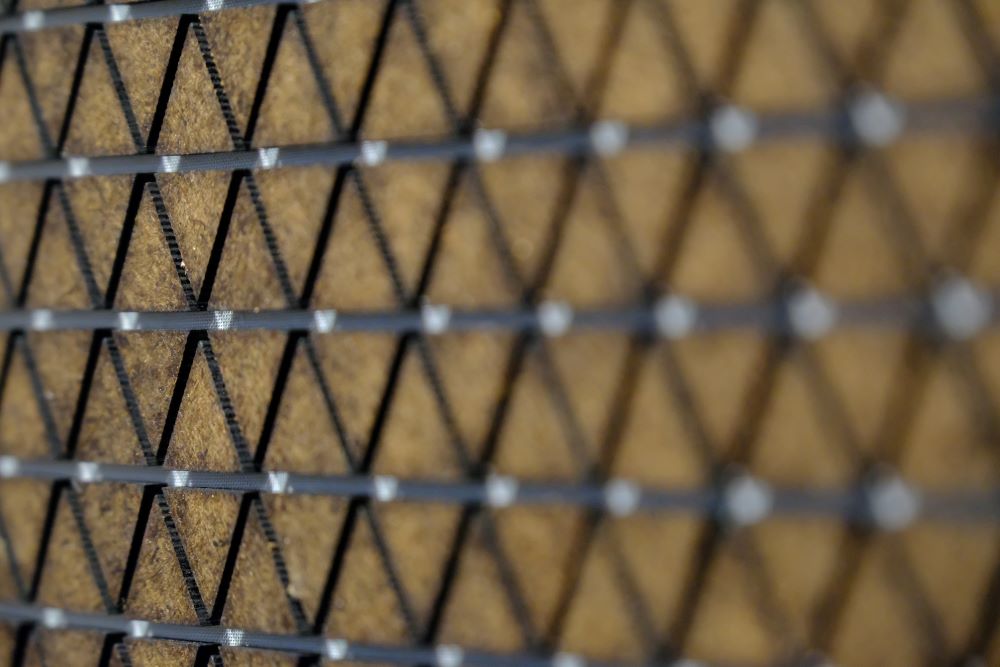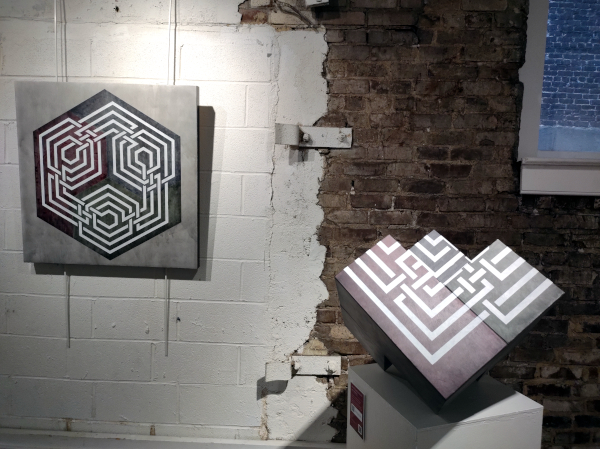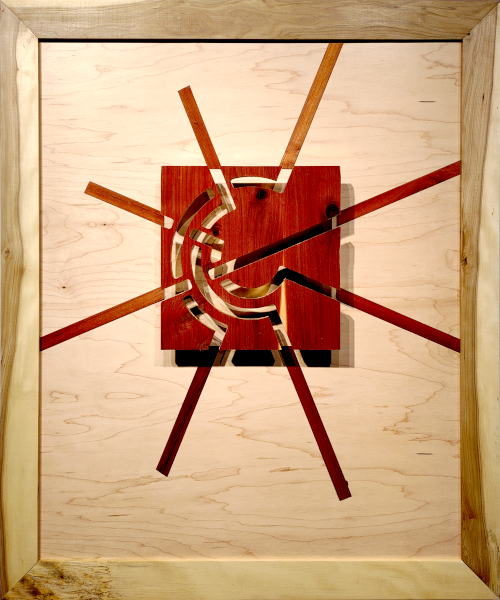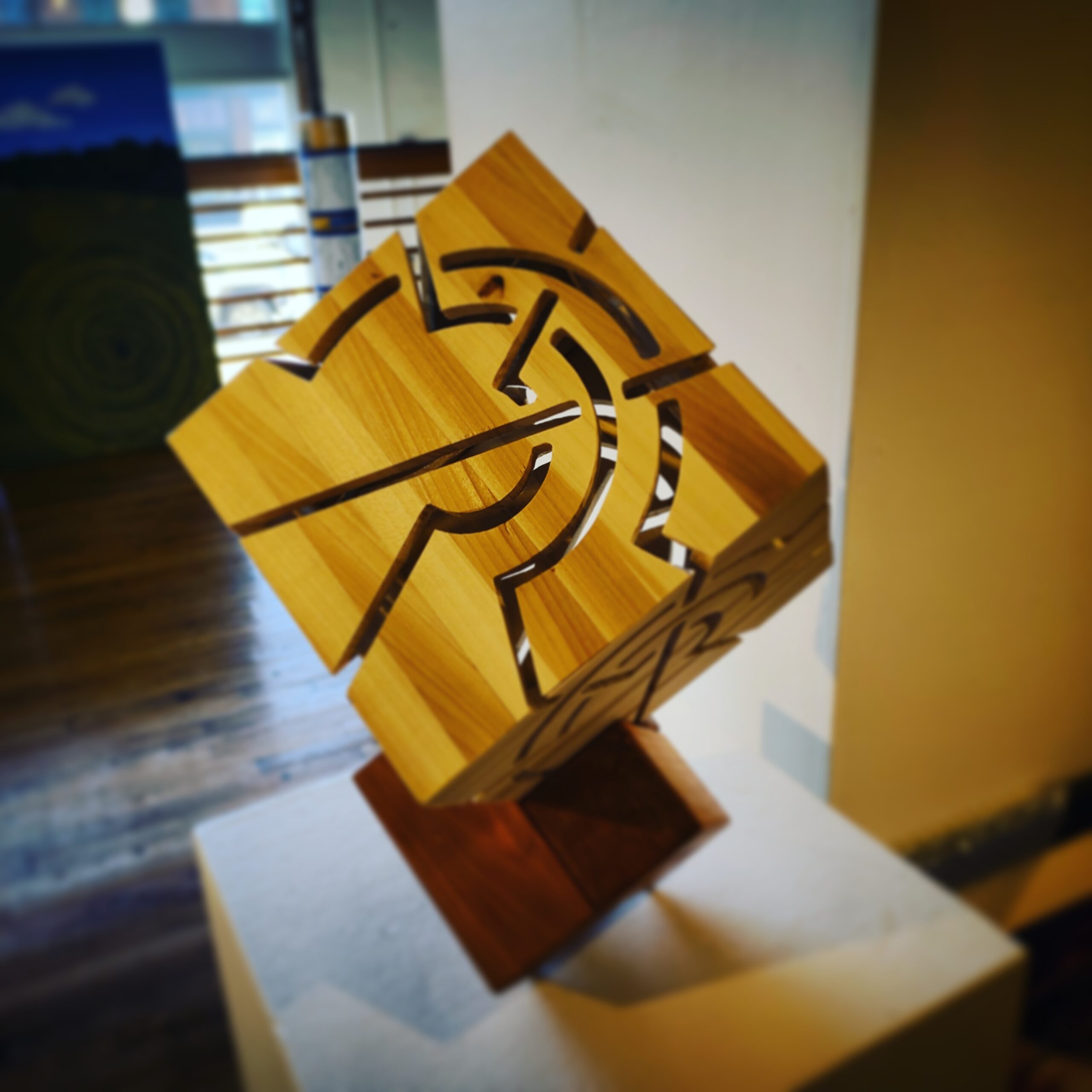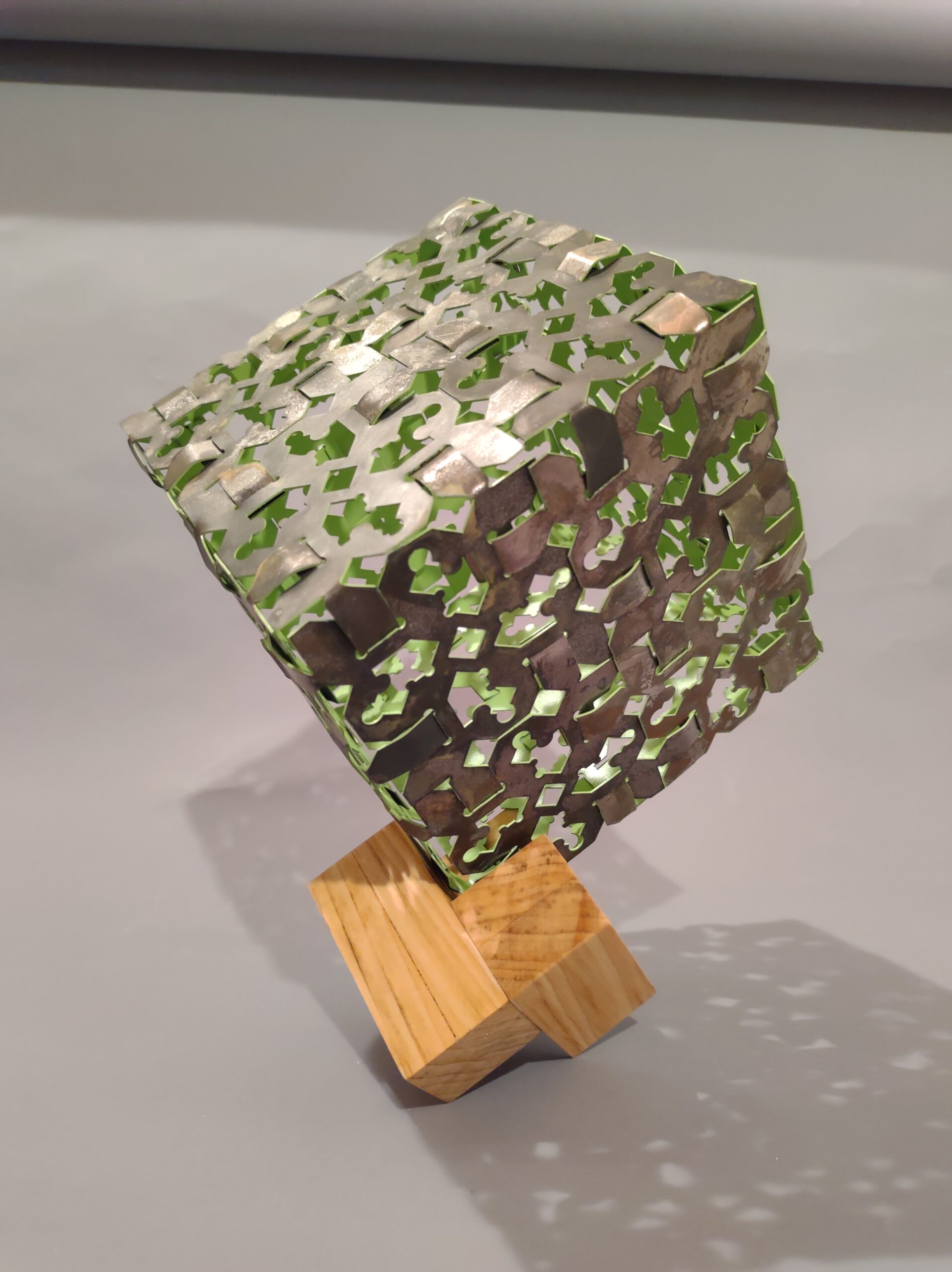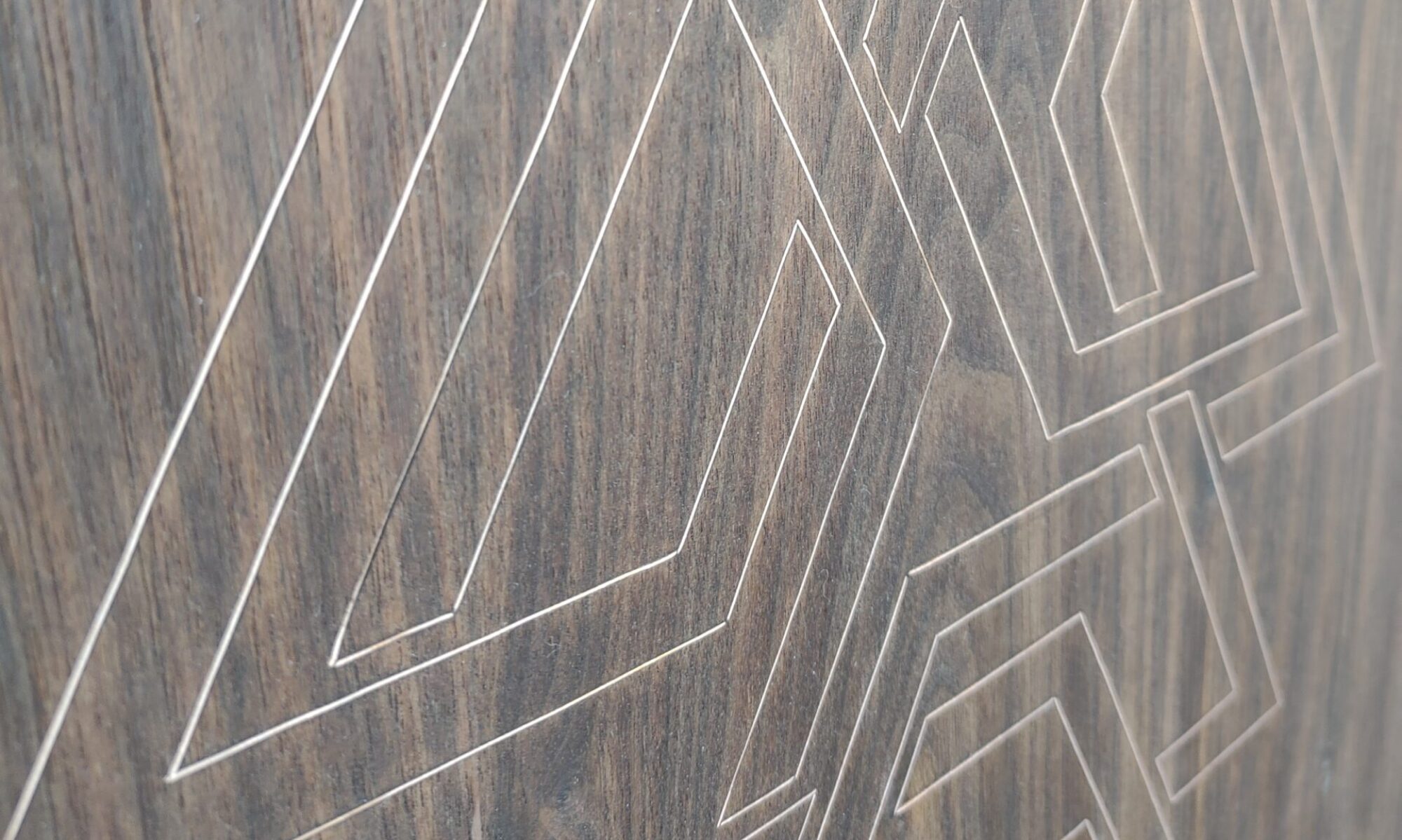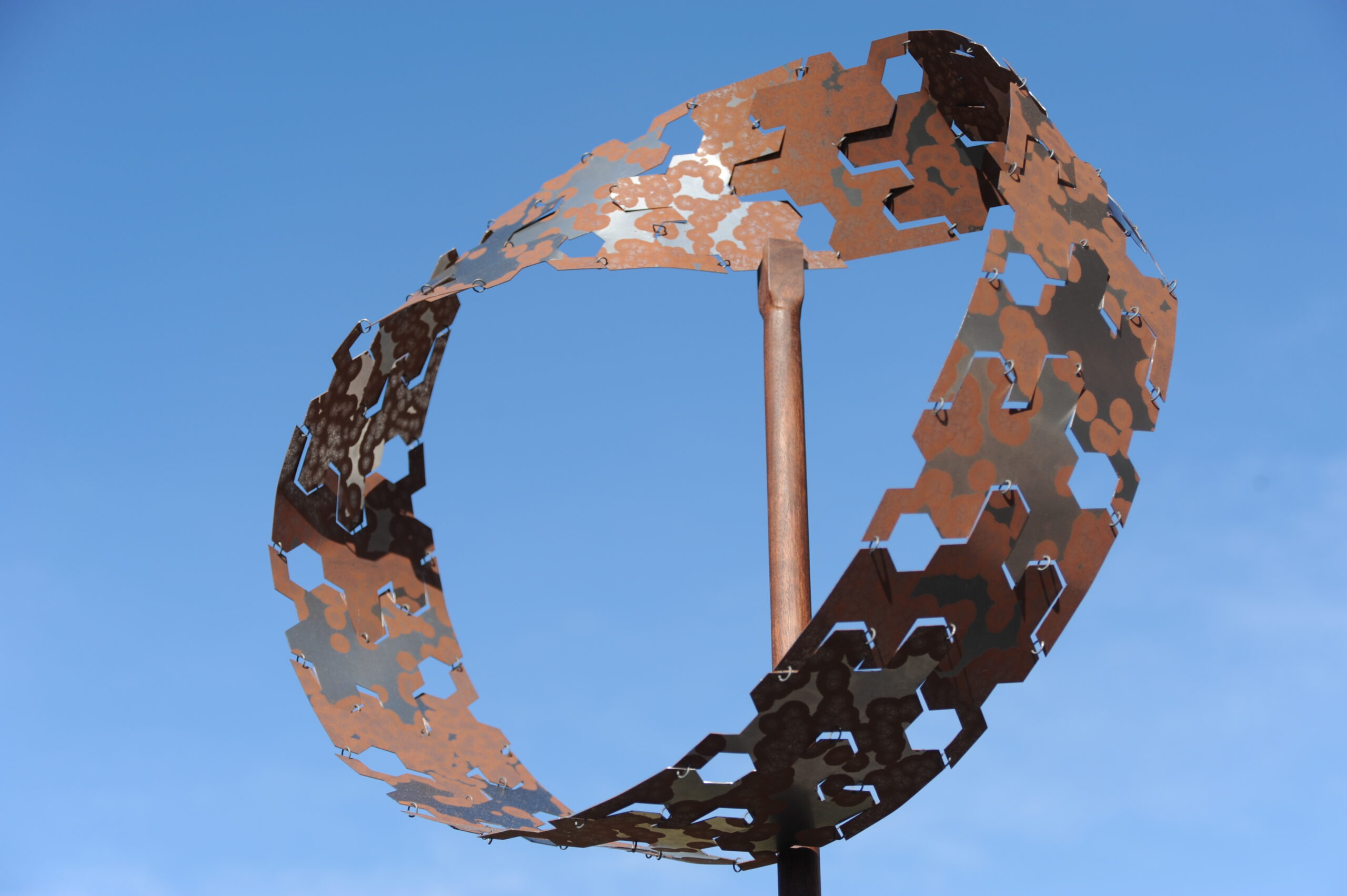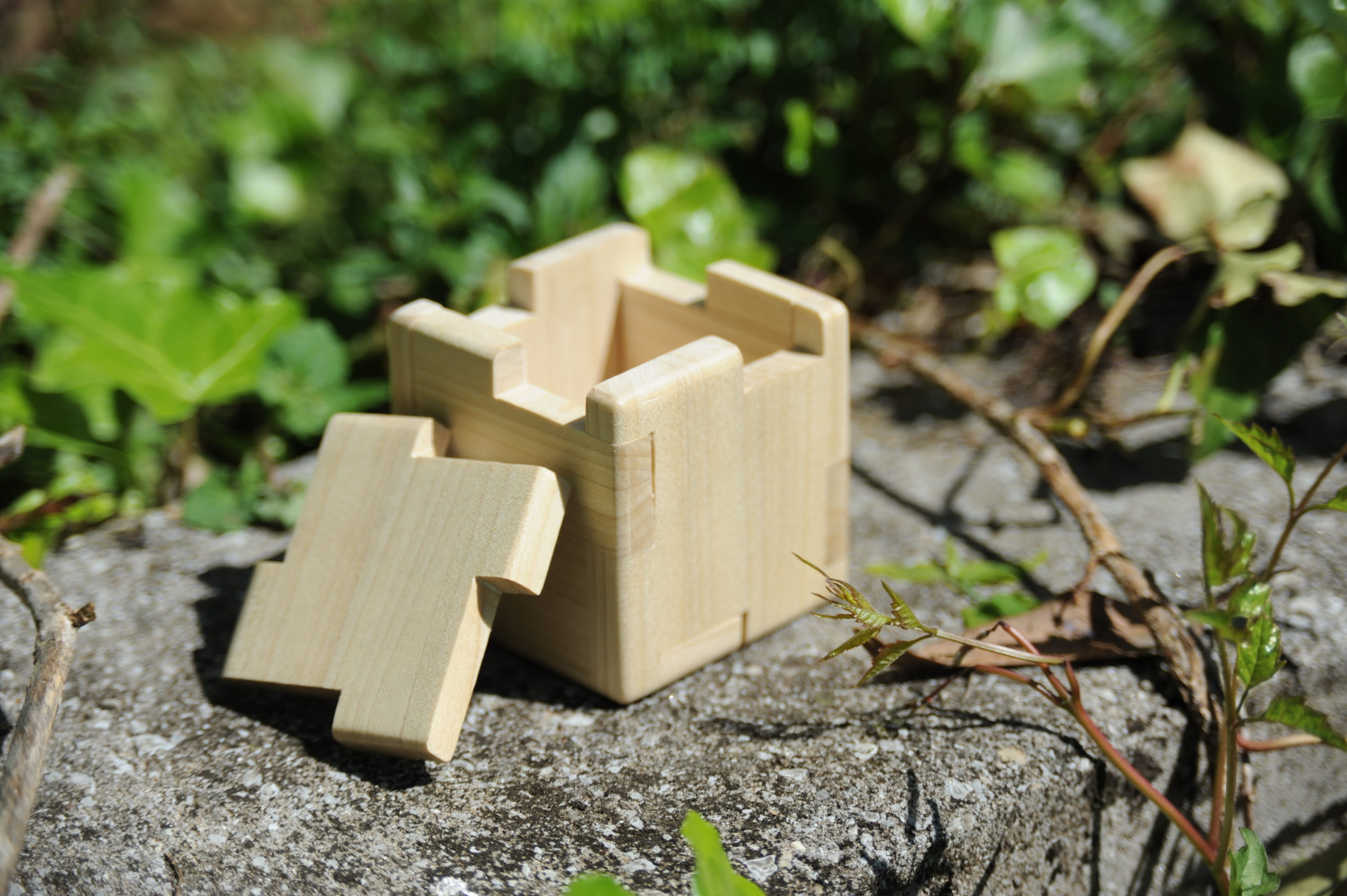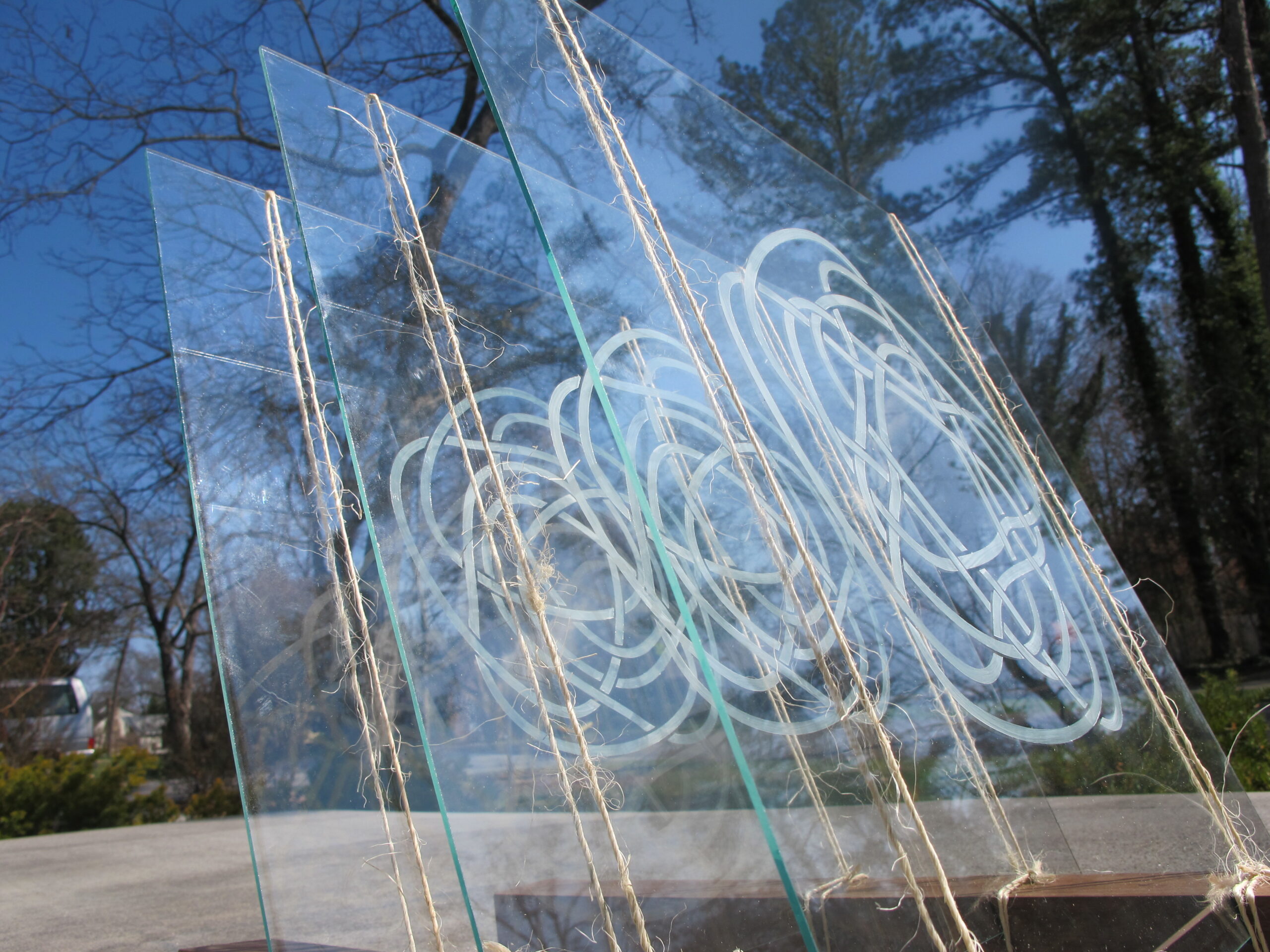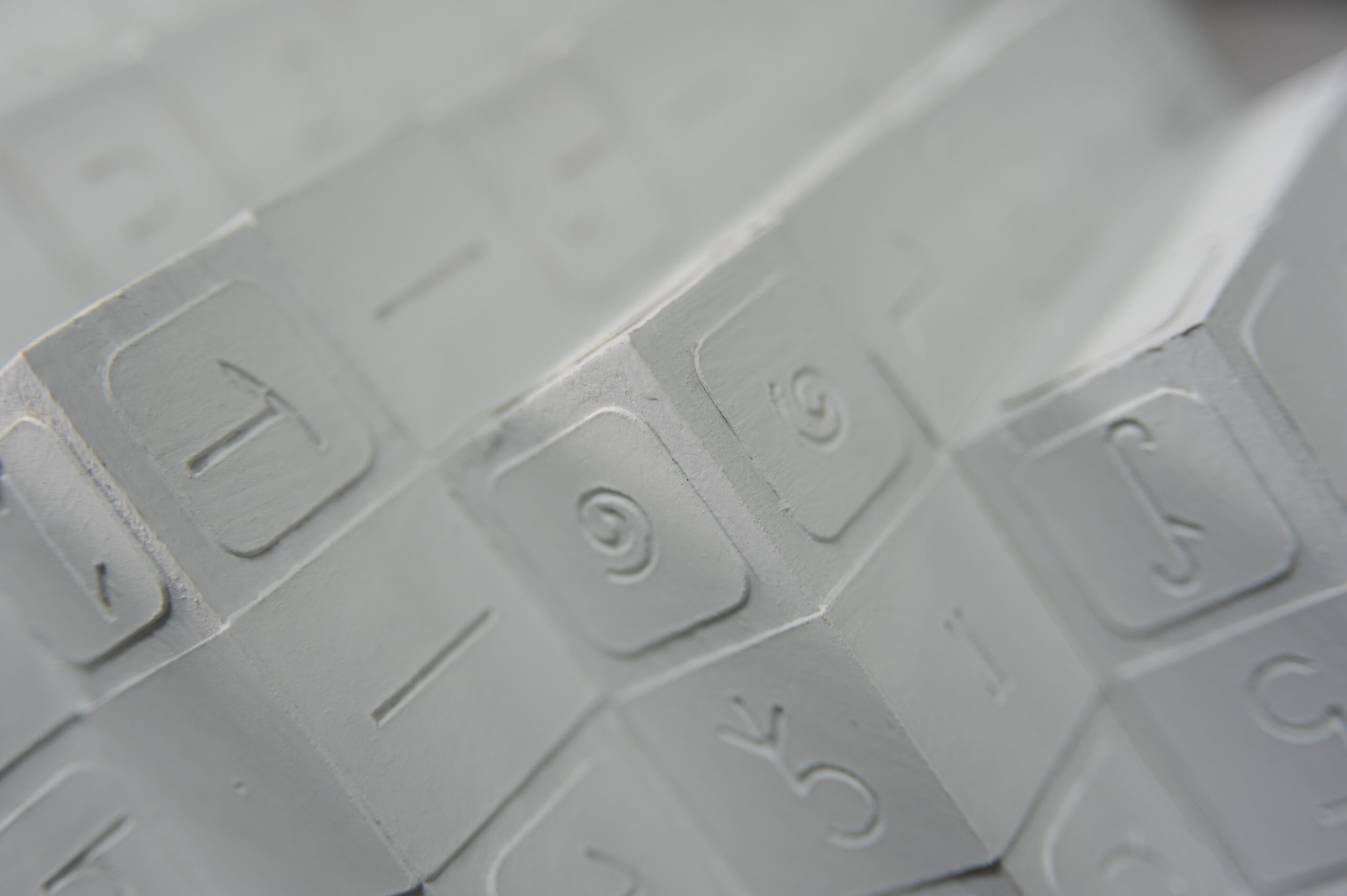Tag: wood
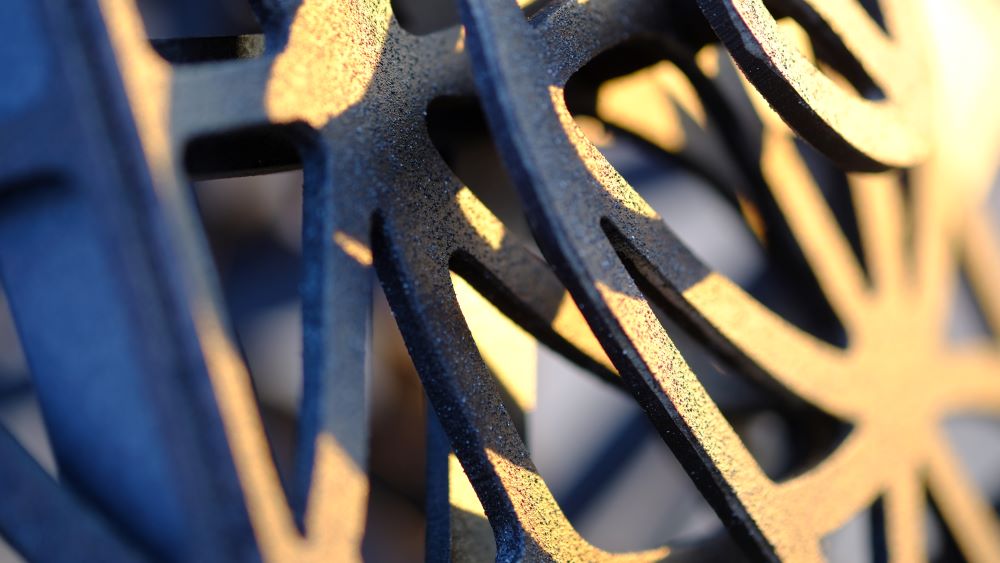
dead temple visions sculpture artifacts
a sculpture with several iterations, made for the Dead Temple Visions sound film
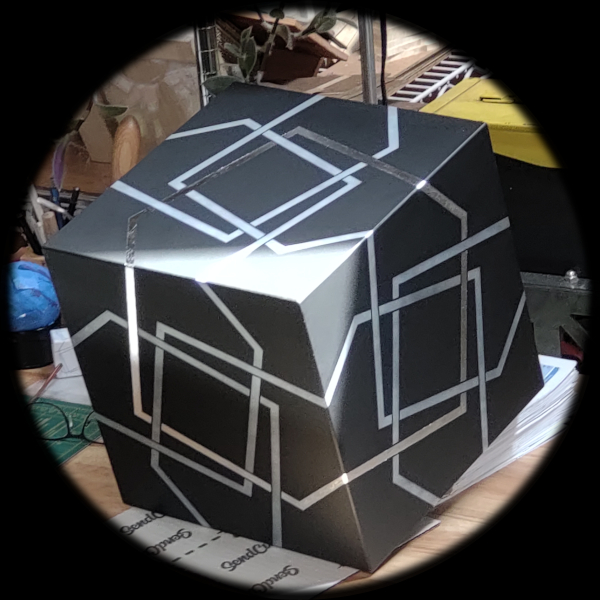
perspective hex
Eight knotted hexagons cover the surface of a cube in a pattern which is identical on each face of the solid.
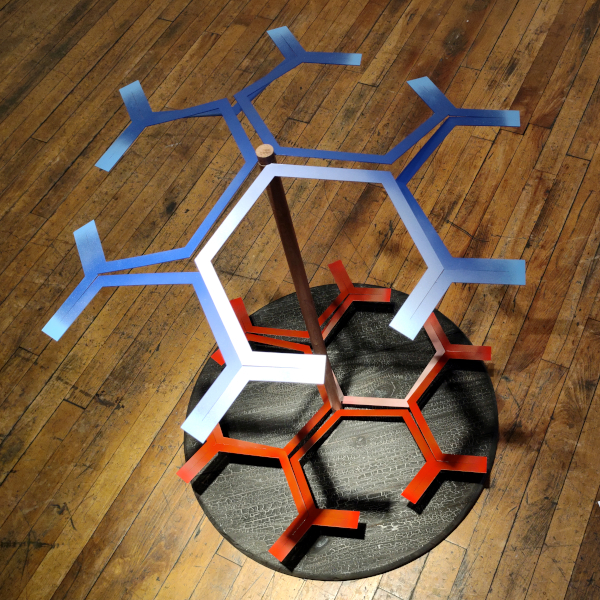
branching unknot
Two unknots are arranged vertically above a charred wood base. The shape of the metal makes self-supporting convex and concave arrangements possible.
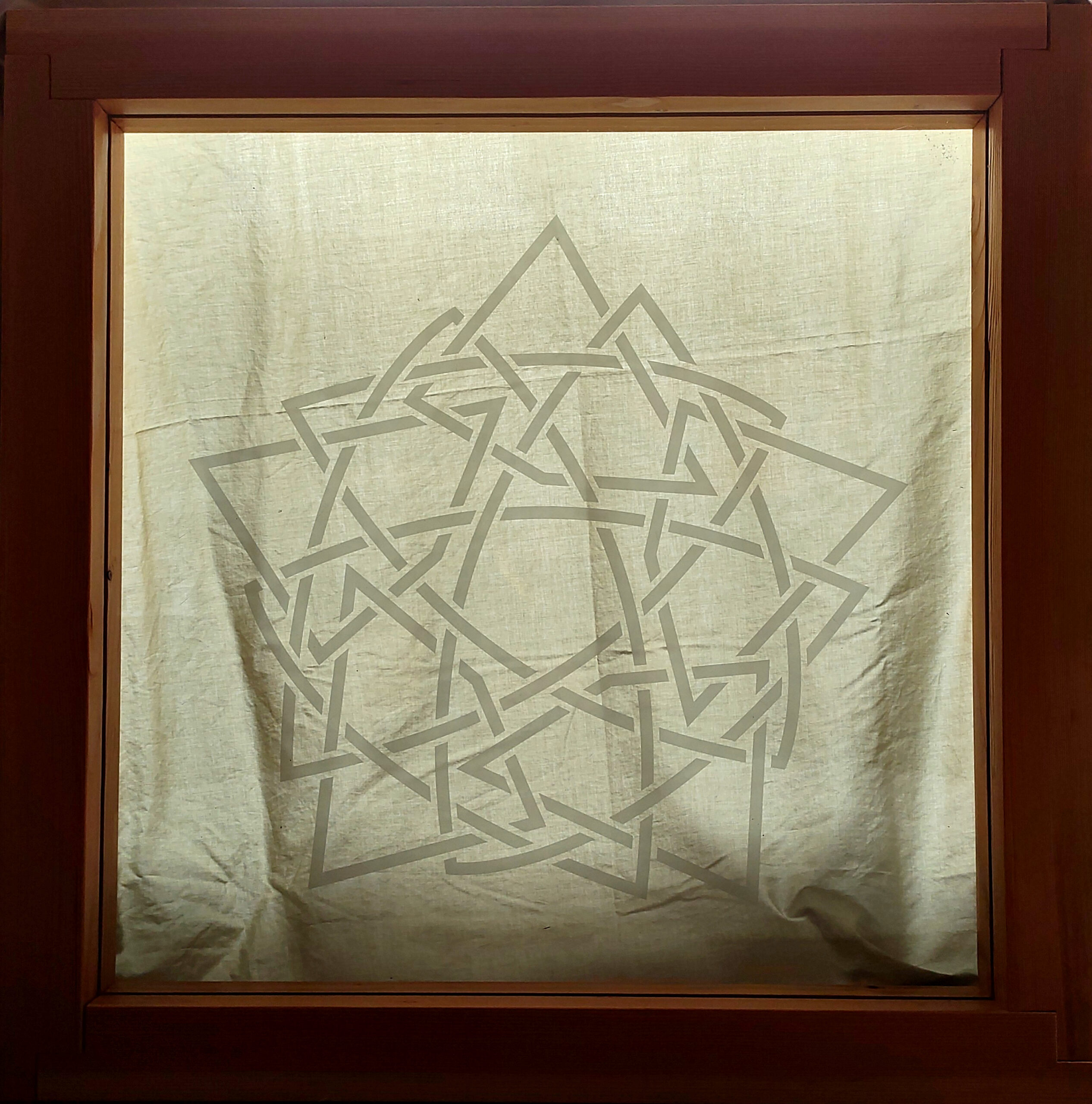
penta angle swirl
A unicursal decagonal star intersects five chained quadrilaterals. The chain gives the impression of a five-pointed star.
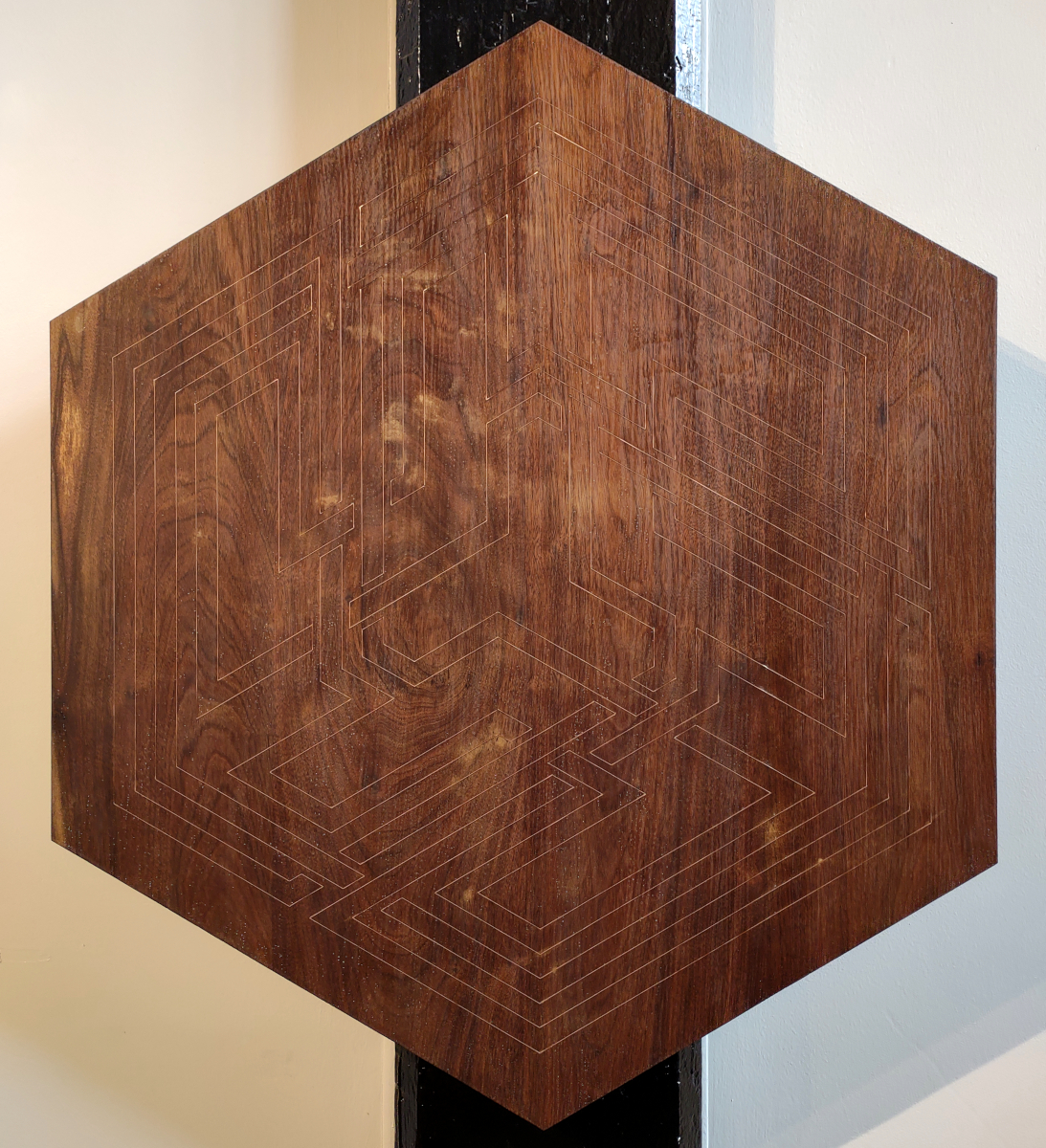
isometric hex knot
Outlined knot segments are inlaid with copper wire. Each segment follows a path which eventually returns to its origin.
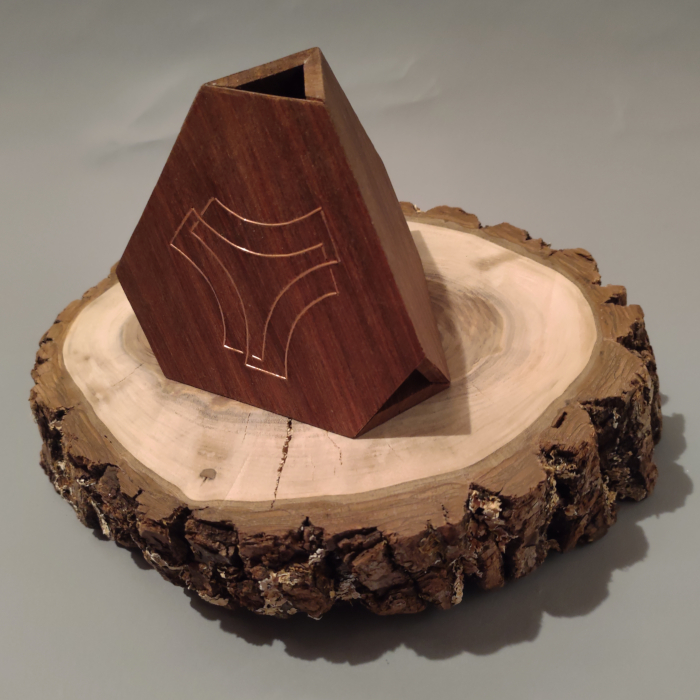
tri unicursal knot
A unicursal line is inlaid in copper on the face of a hollow truncated tetrahedron. The knot creates a cognitive visual illusion of three shapes versus two. The illusion that there are sort of 3 shapes but only really 1 is something I like about this one.
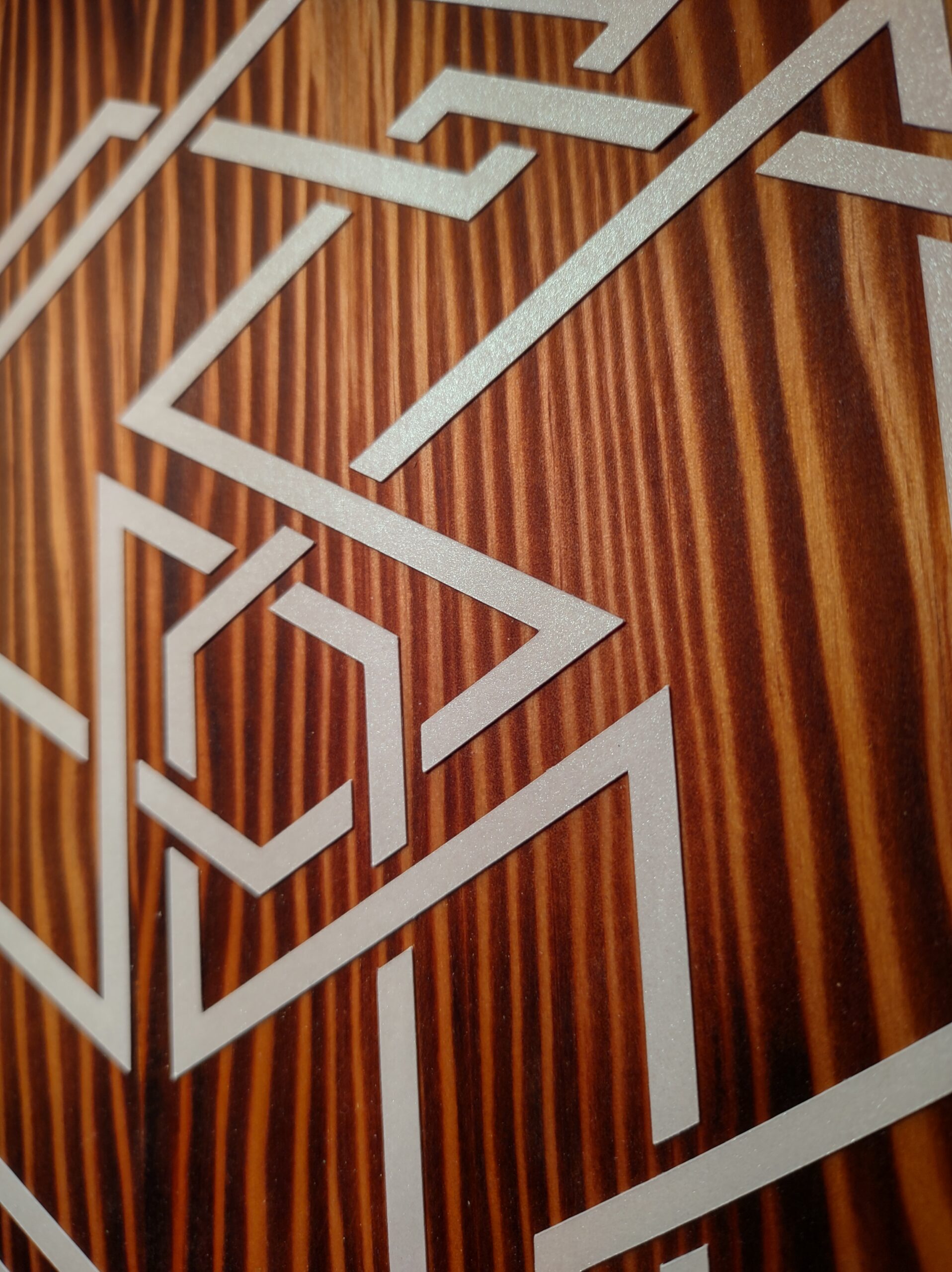
unicursal hex knot
A self-intersecting line rotates to create a hexagonal shape. The line can be followed from any point all the way around to loop back to its beginning. This was another experiment involving cut paper on charred wood. My first attempt at realizing this design was with wire in encaustic medium, shown here. Even though it…
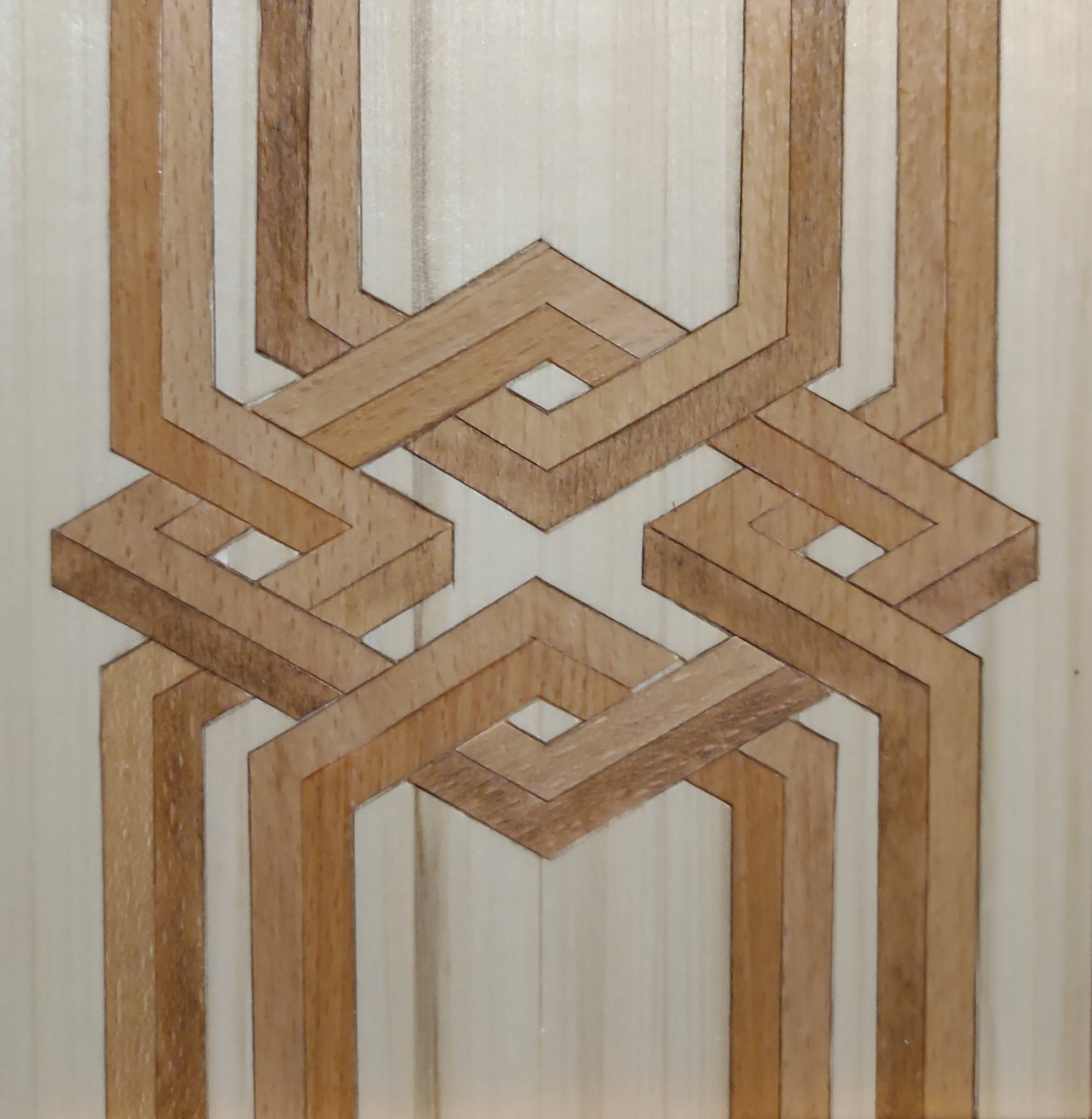
lattice tile
One component of an interlocking tile extends its connectors and uses color variations to imply depth and an isometric perspective. Stained veneer is inlaid in a wood background. This piece involves a bit of experimentation with an isometric knot. The interlocking square shapes require more than one color to give the effect that they are…
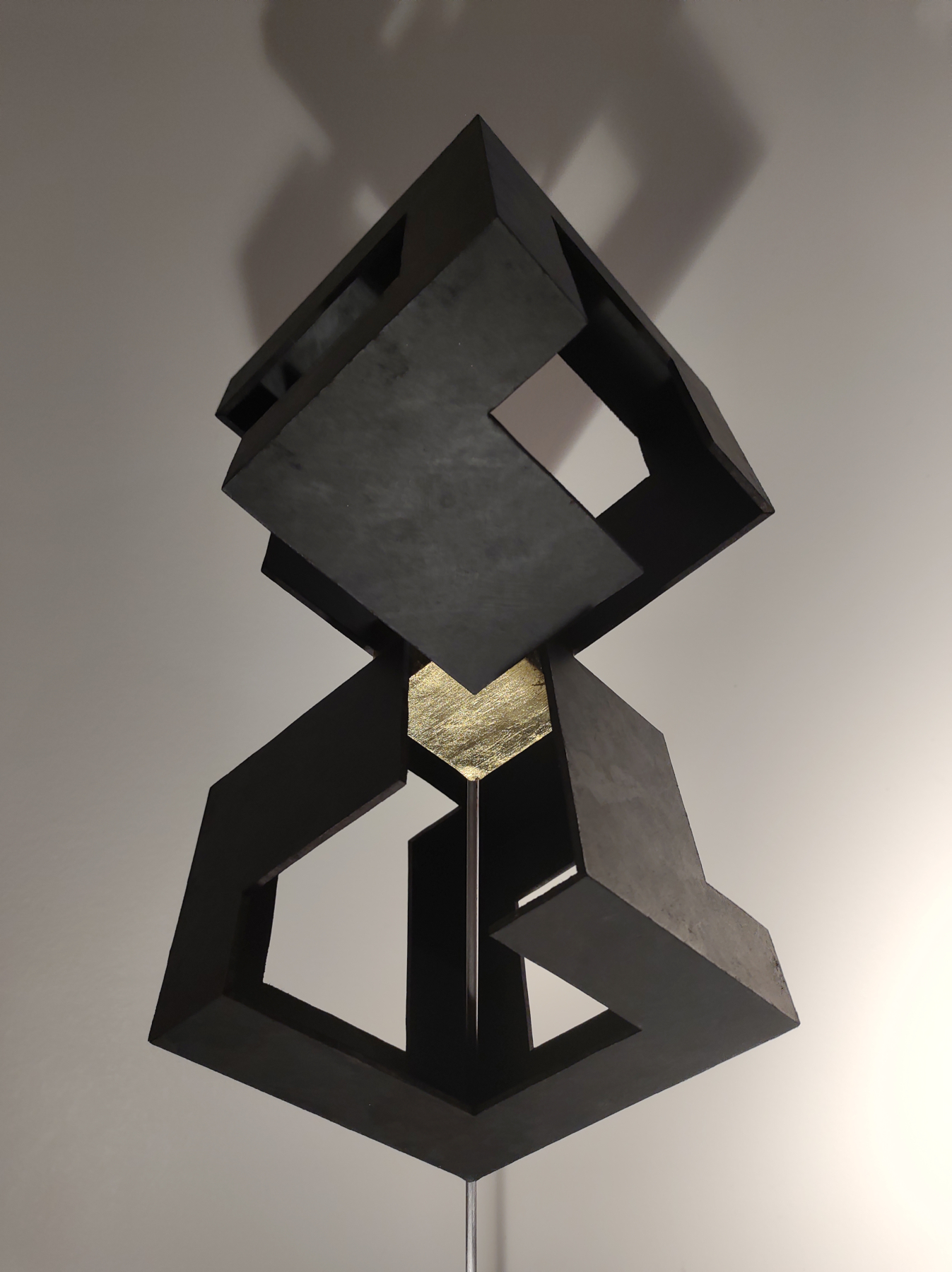
exploded hexahedron tiled with a plane-filling curve
A single line bisects a hollow cube into two mirrored sections.
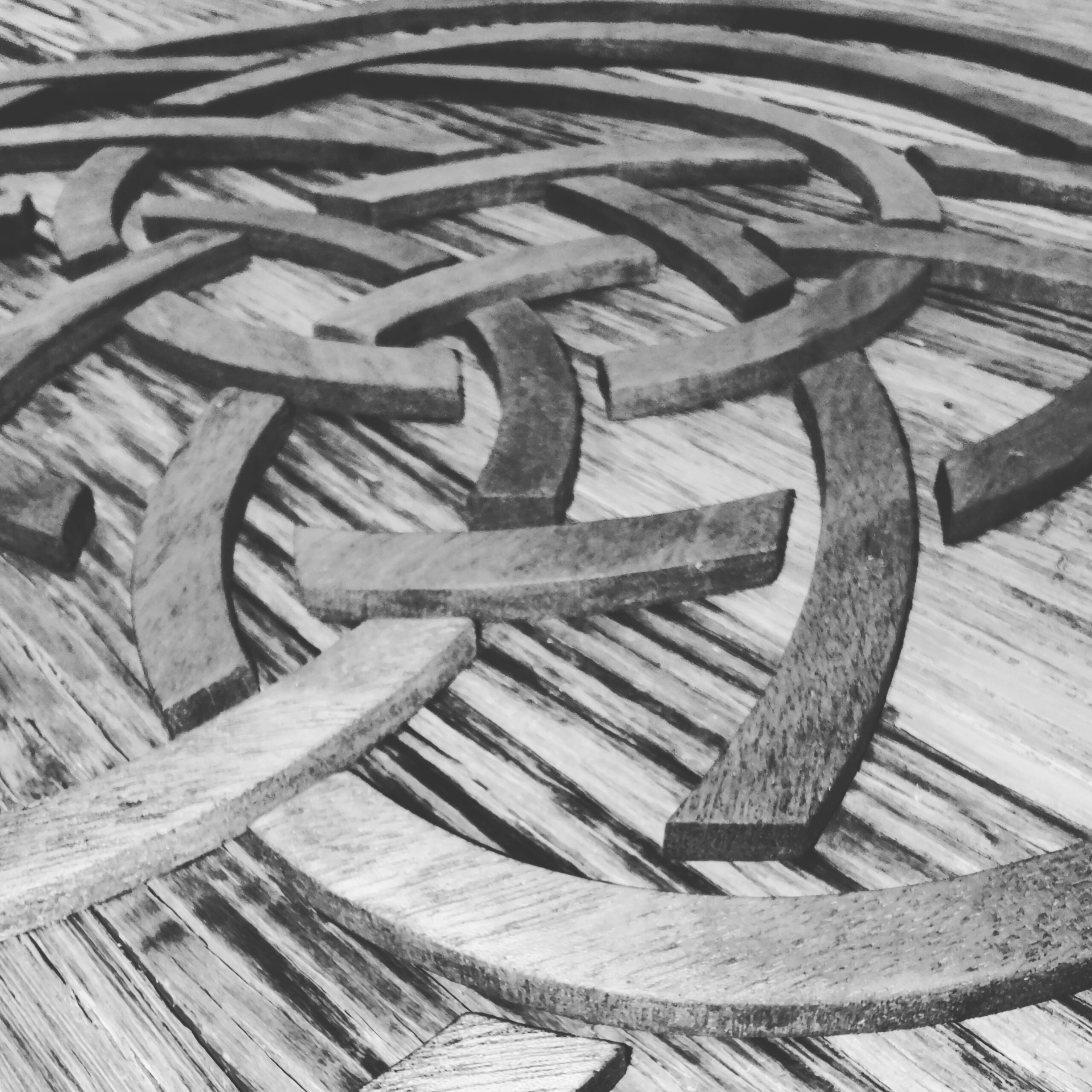
unicursal spiral tercet
Intersecting spirals become one line. The line can be traced from any point back to its origin.
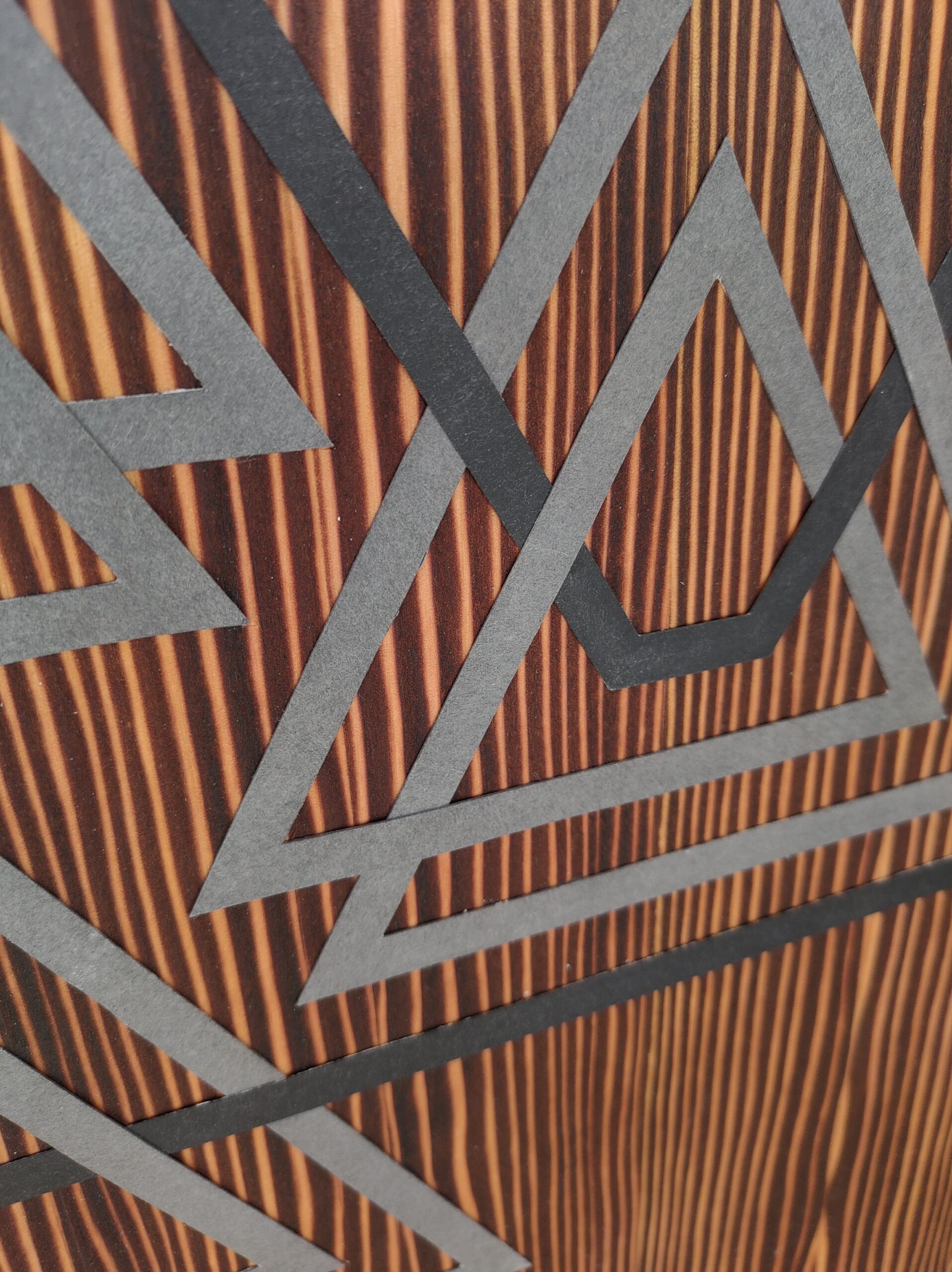
self-intersecting tercet knots with encompassment
Three triangular twists are abound together by an encompassing shape echoing the group’s perimeter. The way the paper is cut and overlapped gives the illusion that each of the four main components are made of single pieces of paper. You have to cheat a little to give the illusion of self-intersecting lines made out of a…
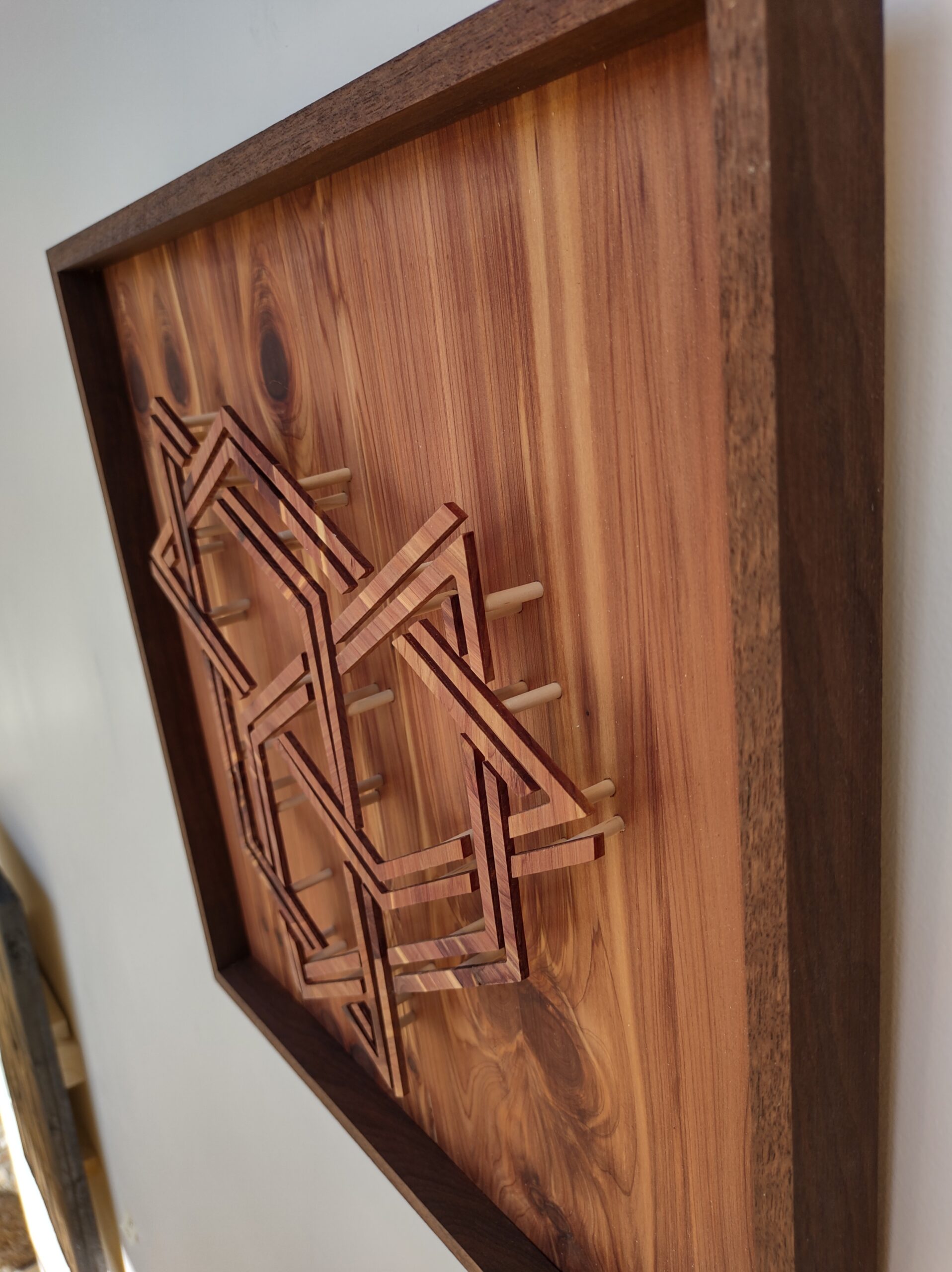
projected isometric tercet knot
This is a double-lined, triple-component knot based on an isometric grid. The rules of knot making are slightly bent with the double line, but half the fun of making your own system is breaking its rules. It is “projected” is because its construction uses small wooden dowels to lift the individual pieces above the surface.…
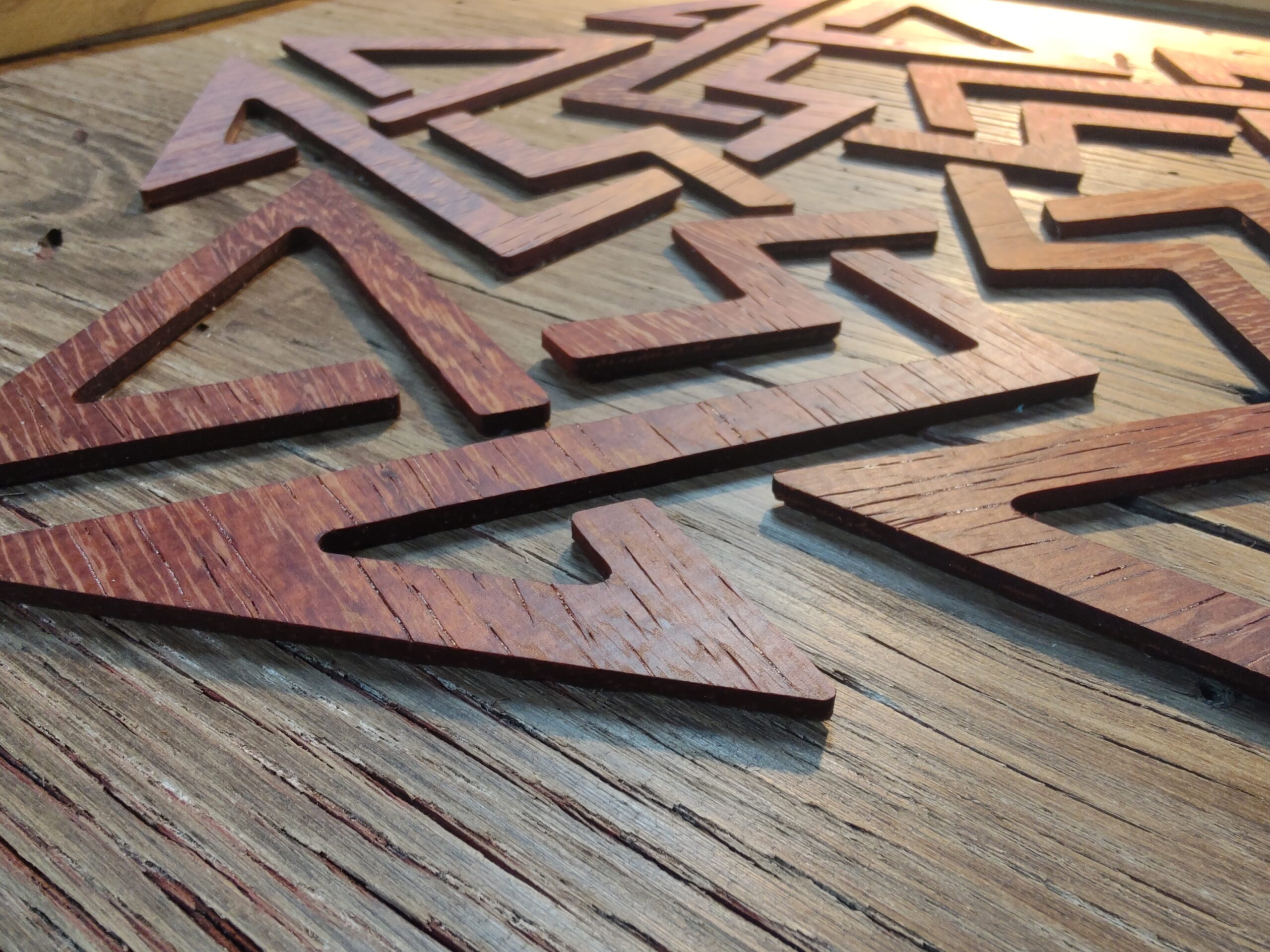
unicursal pentad knot
Follow the (implied) line with your eye. The line is unicursal, meaning there’s only one line. At first you might be tempted to assume there are five sections, and of course there are, but the radial symmetry is just a property of this particular line. These are probably the most difficult knots to design because…

